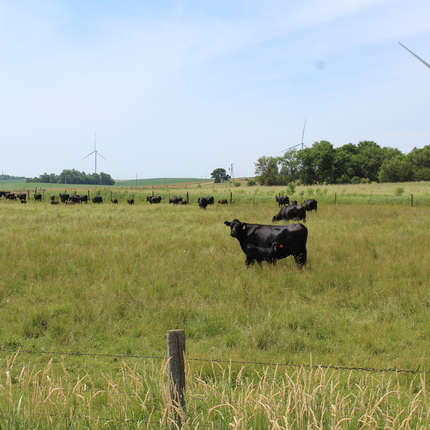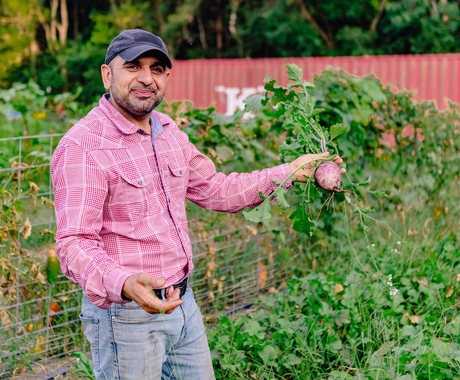It's official! The first day of 2017 is here. What better way to kick it off than with a look at our most viewed post in 2016, authored by Brian Depew, our Executive Director. This piece is a throwback to a popular post Brian and past Executive Director Chuck Hassebrook wrote (so it's a throwback of a throwback). It takes a look at the importance of anti-corporate farming laws -- an issue that's an essential part of the Center’s history.
100 Years of Anti-Corporate Farming Laws
Thanks to the folks at the Organic Consumers Association for reminding us of this article on the importance of anti-corporate farming laws. It has new resonance in light of the recent decision by the Nebraska legislature to allow meatpackers to own hogs prior to slaughter (LB 176). I offer it as a #tbt look back into our archives on this essential issue.
Who grows our nation’s food and how they grow it continues to gain new national prominence. Now more than ever, there is a national interest in building an agricultural system that benefits family farms and rural communities, and a system that is not controlled by large, corporate interests.
This effort to limit corporate control of our farming system has deep roots in the Midwest, where nine states have passed laws restricting corporate farming over the last 100 years. Oklahoma has the oldest corporate farming law in the nation. Originally embedded in the state constitution in 1907, the provision prohibited all corporate ownership in agricultural production.
Similar to other states, the Oklahoma law has been weakened by court challenges over the years. All livestock production is now exempt from the Oklahoma law. It also now allows limited corporate land ownership, carving out several exceptions including one for “family farm corporations.” Similar exemptions are now made in all states with such laws.
Nebraska, South Dakota, North Dakota, Wisconsin, Minnesota, Kansas, Missouri and Iowa have also all attempted to restrict corporate farming over the years. The specifics of the laws vary, but the primary goal of all of them is to protect family farms and ranches from the threats of unfair competition by corporate interests.
Such bans on corporate farming are beneficial to the people of rural America. Research done in 2002 found that states with anti-corporate farming legislation have less poverty, higher employment, and a higher percentage of farms reporting cash gains in agriculturally-dependent counties. Nebraska, where corporations were banned from owning livestock in addition to owning land, leads the nation in its number of smaller feedlot operations. The state also lost fewer independent hog producers than most states in the last 20 years.
From 1907 to 2007 the controversy over corporate farming laws has never waned. Today, states seeking to regulate corporate control of agricultural production are faced with a new series of court challenges based on the interstate commerce clause of the U.S. Constitution.
Laws in Iowa, South Dakota, and Nebraska have all been affected by such rulings. These rulings protect corporate interests and concentrate power in the federal government.
For years, states have struggled to make corporate farming bans work, and for years corporate interests have found ways around existing bans. While some states have lost their laws all together due to court challenges, laws that remain in other states are increasingly full of loopholes. Thus, corporations are permitted to participate in agricultural activities in a number of states that otherwise maintain corporate farming restrictions.
As corporate farming laws come under renewed and aggressive attacks that weaken and eliminate bans, it is important to understand that these rulings have far-reaching consequences. For 100 years Midwest states have battled against corporate farming. As we face the next 100 years we will need the support of the entire nation to regain control of our farm and ranch systems.
Citizens of the entire U.S. are better off when those who work the nation’s farms and ranches are individuals and families who have the opportunity to control their own land and labor, and a desire to create a future for family farming and ranching and for all of rural America that is socially just, economically equitable, and environmentally sound.
Contact: Brian Depew, [email protected] or 402.687.2103 x 1015. (Chuck Hassebrook, former executive director, helped write this too.)





